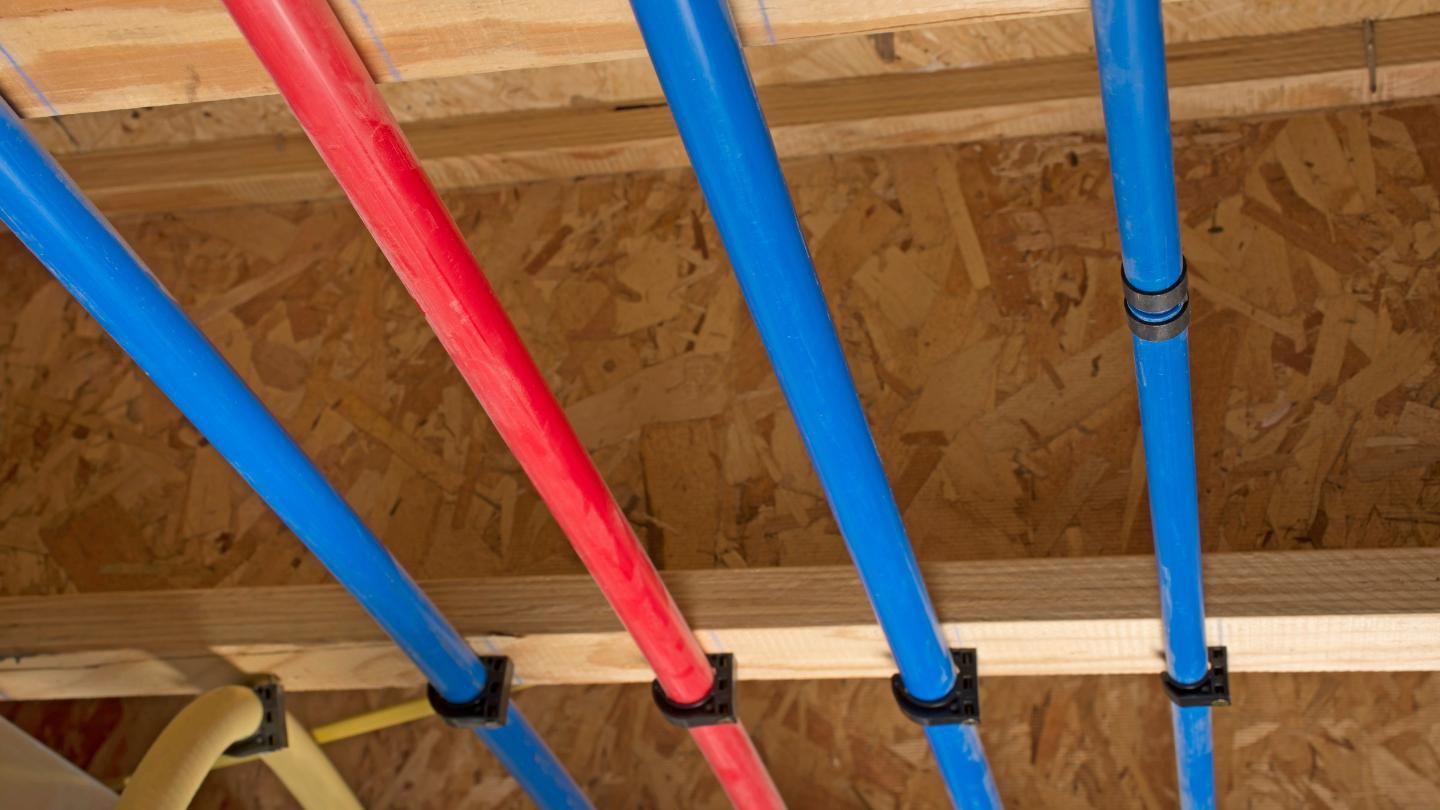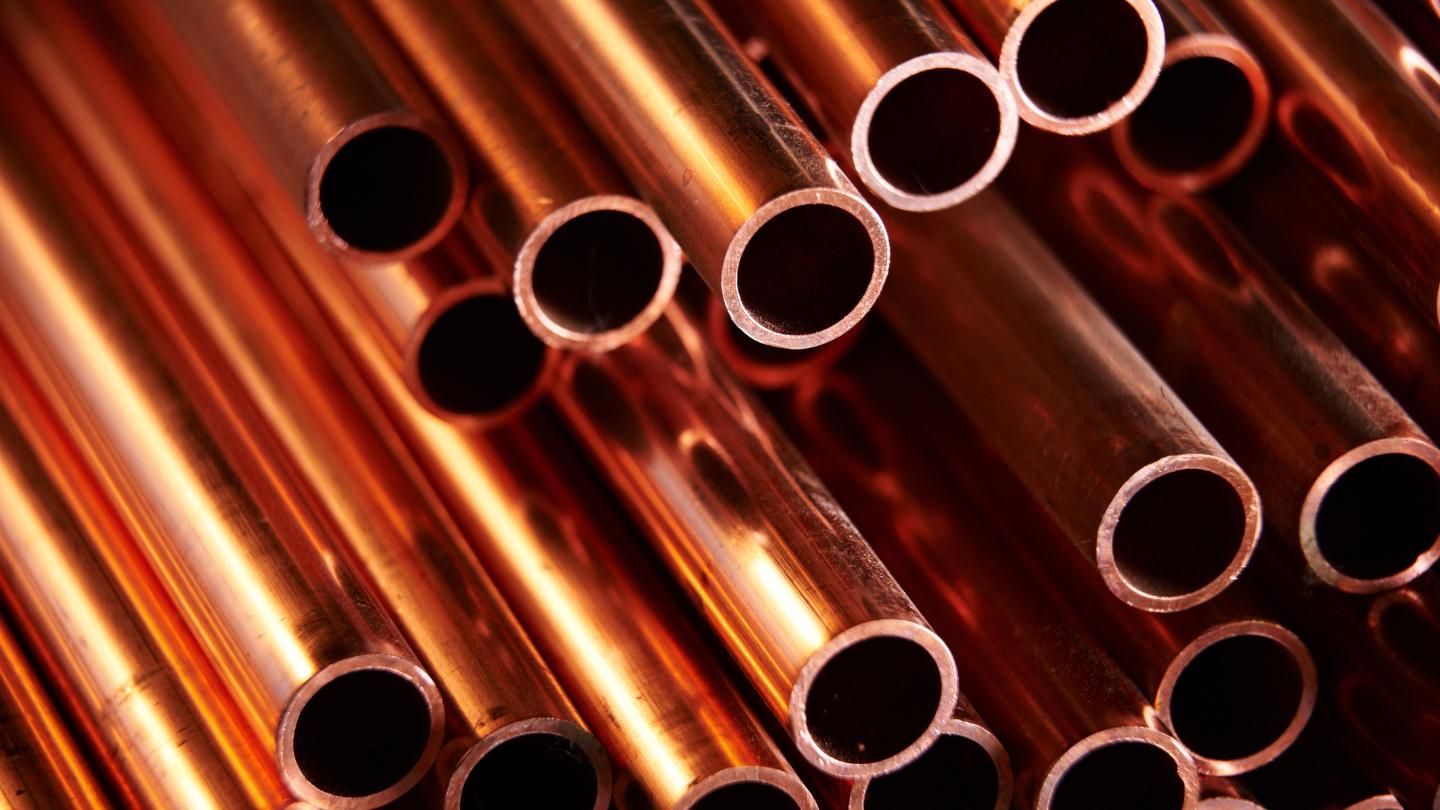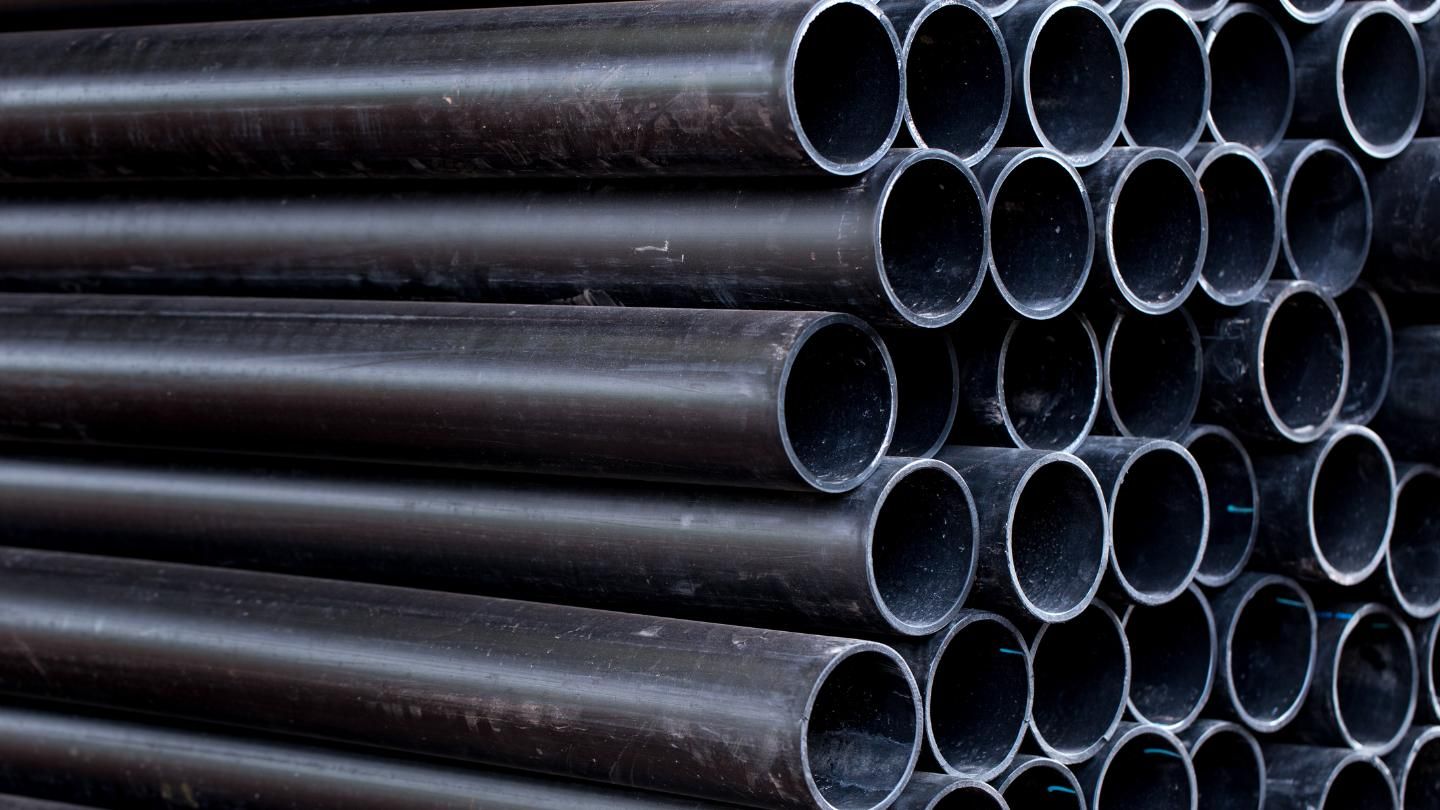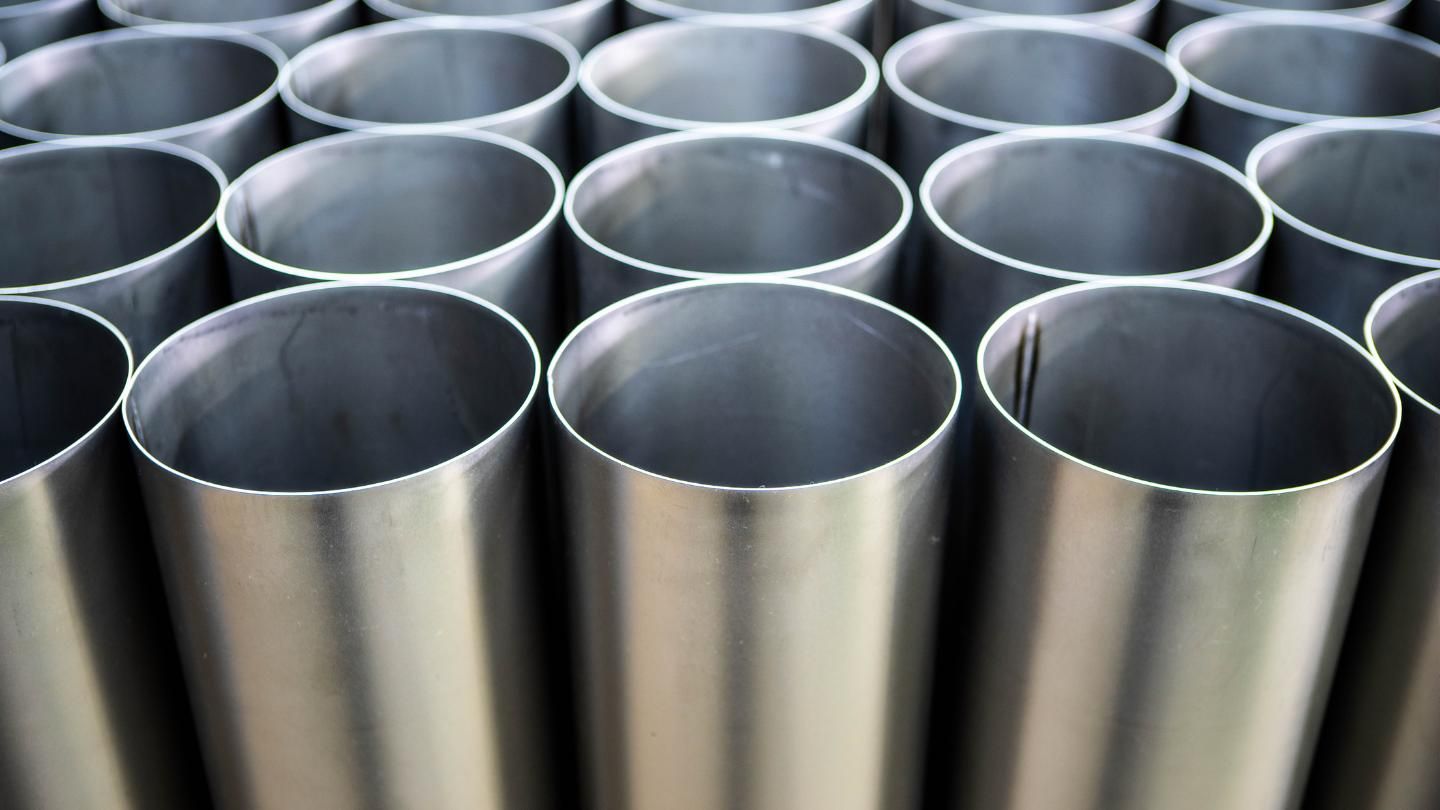Choosing the right plumbing pipe is essential for ensuring the longevity
and functionality of your plumbing system. A professional evaluation of your
needs can help identify the most suitable materials for your project. In this
blog, we delve into the top five types of pipes, examining their benefits and
potential considerations to guide informed decisions.
Key Takeaways
- The five main types of pipes commonly used in plumbing are PVC, PEX, copper, ABS, and cast iron. Each material offers unique advantages and is suited for specific applications.
- Selecting the right pipe involves assessing factors such as the intended use, cost, material durability, and compliance with local building codes, all of which professionals ensure are carefully evaluated.
- The lifespan and maintenance of these pipes vary significantly; materials like copper and cast iron are known for their durability, while galvanized steel, though less common today, requires diligent maintenance to prevent issues such as corrosion.
Polyvinyl Chloride (PVC) Pipes
Polyvinyl chloride, commonly known as PVC, has revolutionized modern
plumbing with its versatility and cost-effectiveness. PVC pipes are extensively
used in both residential and commercial plumbing systems for water supply lines
and drainage. The smooth inner lining of PVC pipes prevents blockages caused by
sediment buildup, ensuring consistent water flow and reliable performance.
Professionally installed PVC systems are highly durable, resisting
corrosion and pressure in a variety of applications. These pipes are
particularly suited for indoor and outdoor use in water supply systems and
drains for toilets, sinks, and showers. Their long lifespan and adaptability
make them an excellent choice for diverse plumbing projects, provided their
specific benefits and limitations are assessed by professionals before
installation.
Benefits of PVC Pipes
PVC pipes offer numerous advantages, making them a staple material in
professional plumbing systems:
- Cost-Effectiveness: PVC
pipes provide an economical solution without compromising quality, reducing
material and overall project costs.
- Durability: The
corrosion-resistant nature of PVC ensures a long service life, even in
challenging environments.
- Ease of Installation: For
professional plumbers, PVC pipes are simple to work with, allowing for quicker
project completion and minimizing labor costs.
- Versatility:
These pipes are suitable for a variety of uses, including water supply lines
and drainage systems, due to their ability to withstand moderate pressure and
environmental factors.
Drawbacks of PVC Pipes
While PVC pipes are reliable, there are considerations that
professionals consider:
- Temperature Sensitivity:
PVC's vulnerability to high temperatures can lead to deformation or failure,
requiring careful material selection for systems exposed to heat.
- Chemical Concerns:
Additives used in PVC production may raise concerns about water purity,
particularly in systems carrying drinking water, though professional-grade
installations mitigate these risks.
- Limited Size Options: PVC
pipes may not accommodate intricate or large-scale plumbing configurations that
demand precise measurements or unique specifications. Professionals evaluate
these factors to determine compatibility.
By relying on skilled plumbers, you can ensure that PVC pipes are
installed and maintained to maximize their advantages while addressing
potential challenges. This makes sure a plumbing system that is both efficient
and long-lasting.
Cross-linked Polyethylene (PEX) Pipes

Cross-linked polyethylene, commonly known as PEX, has become a preferred
choice in modern plumbing due to its flexibility, resilience, and adaptability.
These pipes are recognized for their resistance to rust and corrosion, ensuring
a clean and secure water supply when installed by skilled professionals. Their
versatility makes them ideal for managing both hot and cold-water applications
across various plumbing systems.
Professional plumbers appreciate PEX pipes for their ability to be
routed through tight spaces, walls, and restricted areas without requiring an
excess of joints. These features, combined with their durability, make PEX a
reliable solution for a wide range of plumbing projects.
Types of PEX Pipes
Professional plumbers classify PEX pipes into three main types, each
suited to specific applications:
- Type A:
Highly flexible and ideal for intricate plumbing designs or projects requiring
extensive maneuvering.
- Type B:
Combines moderate flexibility and firmness, making it suitable for general plumbing
installations.
- Type C:
Less pliable and primarily used for straightforward repairs or simpler plumbing
systems.
When selecting a PEX pipe type, professionals assess the unique
requirements of your plumbing system, considering factors like temperature,
pressure, and installation complexity. Local availability may also influence
material selection, which is why expert guidance is invaluable.
Advantages of PEX Pipes
PEX pipes offer numerous benefits that make them an industry-standard in
professional plumbing:
- Rust and Corrosion Resistance:
Maintains water purity by preventing contamination from metal corrosion.
- Ease of Installation:
With professional expertise, PEX pipes can be installed efficiently without the
need for soldering or adhesives, reducing installation time while ensuring a
secure fit.
- Color Coding: Red
and blue color-coding for hot and cold-water lines streamlines identification
and organization within plumbing systems.
- Flexibility: PEX
pipes can easily navigate through tight spaces and curves, minimizing the need
for additional fittings and connections.
Disadvantages of PEX Pipes
Despite their advantages, PEX pipes present challenges that professional
plumbers carefully address:
- UV Sensitivity: PEX
pipes degrade when exposed to sunlight for extended periods, making them
unsuitable for exterior use unless adequately shielded.
- Temperature Vulnerability:
Extreme temperatures can impact the structural stability of PEX pipes,
necessitating expert installation with appropriate safeguards.
- Water Quality Concerns:
While rare, some users have reported altered taste and odor in water conveyed
through PEX systems. Professionals mitigate this by ensuring the highest-grade
materials and proper system flushing during installation.
By relying on professional plumbing services, you can ensure PEX pipes
are installed with precision and care, maximizing their lifespan and
performance while addressing any potential limitations.
Copper Pipes

Copper pipes are a cornerstone of plumbing systems, renowned for their
strength, durability, and reliability. These pipes are particularly valued for
their ability to convey drinking water safely due to their resilience against
corrosion and impurities. Available in various sizes and gauges, copper pipes
are tailored to meet diverse plumbing needs and pressure requirements. Whether
used in residential or commercial systems, copper pipes remain a trusted
material in professional plumbing projects.
When choosing copper pipes, professional plumbers evaluate their
benefits alongside financial and environmental factors to ensure the right fit
for your specific plumbing system.
Rigid vs. Flexible Copper Pipes
Professional plumbers work with two main types of copper pipes—rigid and
flexible—to address different installation needs:
- Rigid Copper Pipes:
Ideal for straight runs, these pipes are often used in large plumbing systems
and main water lines due to their robust and sturdy nature.
- Flexible Copper Pipes:
These are preferred for areas requiring intricate configurations or in tight
spaces, as their flexibility allows for easier routing and fewer fittings.
Plumbers assess the requirements of your project to determine whether
rigid or flexible copper is the best choice, ensuring an efficient and durable
installation.
Pros of Copper Pipes
Copper pipes are widely used in plumbing systems due to their numerous
advantages:
- Corrosion Resistance:
Copper's natural resistance to rust and corrosion ensures long-term reliability
and minimizes maintenance needs.
- High-Pressure Tolerance:
Copper pipes can handle pressures up to 1000 psi and are suitable for various
water supply applications.
- UV Stability:
Copper is unaffected by ultraviolet rays, making it an excellent choice for
outdoor applications or systems exposed to sunlight.
- Temperature Resilience:
Copper pipes maintain structural integrity in extreme temperatures, from
sweltering heat to cold.
These features make copper pipes preferred for plumbing professionals,
especially in systems requiring durability and consistent performance.
Cons of Copper Pipes
While copper pipes offer exceptional benefits, they do present
challenges that require professional attention:
- Higher Cost:
Copper is more expensive than alternatives like PVC or PEX, but its durability
often offsets the initial investment over time.
- Freezing Risk: In
cold climates, copper pipes require proper insulation to prevent freezing and
bursting, a factor carefully addressed by professionals during installation.
- Theft Risk: The
high scrap value of copper can make these pipes a target for theft.
Professional plumbers recommend secure installation practices to mitigate this
concern.
By working with experienced plumbers, these challenges can be
effectively managed, ensuring that copper pipes perform optimally and provide
lasting value.
Acrylonitrile Butadiene Styrene (ABS) Pipes

Acrylonitrile Butadiene Styrene, commonly known as ABS, is a durable and
lightweight material often used in plumbing systems for drain, waste, and vent
applications. Recognizable by its distinctive black color, ABS pipes are
favored for their resistance to impact and ease of assembly. Their one-step
cement application makes professional installation efficient and reliable.
ABS pipes are particularly valued in regions with colder temperatures
due to their ability to maintain functionality in low-temperature environments.
However, proper installation by skilled plumbers is essential to maximize their
benefits and address potential limitations.
Strengths of ABS Pipes
ABS pipes offer numerous advantages that make them a preferred choice
for specific plumbing systems:
- Impact Resistance: ABS
pipes are highly durable, reducing the risk of damage during and after
installation.
- Low-Temperature Performance:
They retain structural integrity in colder climates, making them suitable for
areas prone to freezing conditions.
- Simplified Assembly: The
ability to connect ABS segments with one-step cement allows professional
plumbers to complete installations more efficiently, ensuring long-term
dependability.
- Drain, Waste, and Vent Use: ABS
pipes excel in systems designed for carrying waste and venting gases, offering
a cost-effective and reliable solution for residential and commercial plumbing
projects.
These features make ABS a trusted material for plumbing professionals
handling drainage and venting systems.
Weaknesses of ABS Pipes
While ABS pipes provide significant benefits, they also come with
challenges that require professional expertise to mitigate:
- Noise Levels: ABS
pipes can produce more noise than other materials when water flows through
them. Professional plumbers often install sound-dampening solutions to minimize
disturbances in residential systems.
- UV Sensitivity:
Prolonged exposure to direct sunlight can cause ABS pipes to deform, limiting
their use in outdoor settings without proper shielding. Plumbers account for
this by ensuring appropriate placement and protective measures during
installation.
By leveraging professional installation and maintenance, the limitations
of ABS pipes can be effectively managed, ensuring their durability and
functionality over the long term.
Galvanized Steel Pipes

Galvanized steel pipes, once a mainstay in plumbing systems during the
early 20th century, were valued for their strength and durability. These pipes
feature a protective zinc coating that helps resist corrosion, making them a
robust choice for challenging environments. While they are less commonly used
in modern plumbing systems, galvanized steel pipes are still found in older
homes and industrial settings, where they continue to demonstrate their
longevity under harsh conditions.
In modern applications, professional plumbers assess the viability of
galvanized steel pipes based on their existing condition and suitability for
the intended use, ensuring that they meet current plumbing standards.
Advantages of Galvanized Steel Pipes
Galvanized steel pipes offer several benefits that made them a popular
choice in the past and maintain their relevance in specific applications:
- Strength and Durability: The
sturdy metal construction provides exceptional resilience, making them suitable
for high-pressure systems and exterior applications.
- Corrosion Resistance: The
zinc coating slows down the corrosion process, extending the pipe's lifespan
and ensuring consistent performance when properly maintained.
- Versatility:
These pipes are still effective for gas lines and exterior plumbing in older or
industrial systems.
Professionals often retain galvanized steel in older systems if the
pipes remain structurally sound, supplementing them with modern plumbing
solutions where necessary to enhance performance.
Disadvantages of Galvanized Steel Pipes
Despite their strengths, galvanized steel pipes have limitations that
require careful consideration by skilled plumbers:
- Corrosion Over Time: The
zinc coating can wear away, leading to rust and potential leaks. Professional
inspections and maintenance can identify and address these issues before they
escalate.
- Mineral and Sediment Build-Up: Accumulations
inside the pipes can reduce water flow and efficiency. Plumbers often recommend
cleaning or replacing sections of galvanized steel piping to restore optimal
functionality.
- Heavy Material: The
weight of galvanized steel pipes makes installation and repairs more
labor-intensive, requiring specialized tools and expertise.
Modern plumbing projects often opt for alternative materials to address
these challenges, but galvanized steel remains a viable option in specific
cases. Professional plumbers ensure that such pipes are properly assessed,
repaired, or replaced as needed to maintain the integrity of the plumbing
system.
Cast Iron Pipes
Cast iron pipes have long been a cornerstone of plumbing systems,
commonly found in older residential and commercial properties. Known for their
strength and longevity, these pipes offer distinct advantages, such as superior
sound-dampening and resistance to fire. However, their heavy weight and
susceptibility to corrosion over time require expert handling during
installation and maintenance to ensure optimal performance.
Professional plumbers often assess cast iron pipes in existing systems
to determine their structural integrity and compatibility with modern plumbing
requirements, offering tailored solutions based on the specific needs of the
property.
Benefits of Cast Iron Pipes
Cast iron pipes remain a preferred choice in certain plumbing
applications due to their unique benefits:
- Sound Dampening:
Cast iron pipes minimize noise from water flow, enhancing the comfort of
residential and commercial environments.
- Fire Resistance:
Their non-combustible nature adds an extra layer of safety, particularly in
buildings with stringent fire safety regulations.
- Durability:
Cast iron pipes can last for decades with proper installation and maintenance,
making them a reliable choice in certain situations.
These advantages make cast iron pipes a valuable component in systems
where noise reduction and fire resistance are critical priorities.
Drawbacks of Cast Iron Pipes
While cast iron pipes offer significant benefits, they also come with
challenges that require professional expertise to manage:
- Heavy Weight: The
substantial weight of cast iron pipes can complicate installation,
necessitating specialized machinery and increased labor. Professional plumbers
use advanced equipment and techniques to streamline this process.
- Corrosion Over Time:
Cast iron pipes are prone to rust and degradation as they age, potentially
compromising their functionality. Plumbers address this issue by conducting
regular inspections, applying protective coatings, or replacing corroded
sections.
- High Installation Effort: The
complexity of installing cast iron pipes demands skilled professionals to
ensure proper alignment and secure fittings, reducing the risk of future leaks
or failures.
While newer, lighter materials are available, cast-iron pipes remain a
dependable option in specific applications. Professional plumbers can evaluate
whether cast iron is the right fit for your system, ensuring it performs
reliably and meets modern standards.
Choosing the Right Plumbing Pipe for Your Needs
Selecting the appropriate plumbing pipe is vital for ensuring a durable
and efficient plumbing system. Professional plumbers consider multiple factors
when recommending materials, including the type of application,
cost-effectiveness, environmental impact, and compliance with local building
codes. This expertise ensures that the chosen materials will meet the specific
demands of your plumbing project.
For Flexibility and Quick Installation: PEX pipes are an excellent
choice due to their adaptability and ease of routing through tight spaces.
Professionals appreciate their efficiency in projects requiring minimal joints
and quick completion.
For Environmental Considerations: Copper pipes are ideal for those
prioritizing eco-friendliness and recyclability. Their durability and
resistance to corrosion further enhance their long-term value in sustainable
plumbing systems.
Relying on professional plumbers ensures the selection process accounts
for critical factors such as temperature variations, water pressure
requirements, and long-term durability. Their experience assures an informed
decision tailored to your system's unique needs.
Maintenance and Lifespan of Plumbing Pipes
The lifespan and maintenance requirements of plumbing pipes vary
depending on the material used. Professional assessments help ensure that your
system remains functional and cost-effective over time.
- Copper Pipes
typically last 50 to 70 years with proper maintenance, influenced by water
quality and local climate conditions.
- Brass Pipes:
Comparable to copper, brass pipes have a lifespan of 40 to 70 years and are
often used in long-lasting installations.
- Cast iron pipes are
known for their durability, and they can last between 75 and 100 years, making
them a reliable option for long-term systems.
- Galvanized Steel Pipes have
a shorter lifespan of 20 to 50 years, requiring regular inspections and
maintenance to prevent corrosion and leaks.
By partnering with professional plumbers, you can ensure timely
maintenance and effective repairs, reducing the risk of costly replacements.
Evaluating both initial installation costs and long-term maintenance expenses
with expert guidance helps you make informed, cost-effective decisions.
Summary
Recognizing the different types of plumbing pipes is key to ensuring an
efficient and durable plumbing system. From the cost-effective and adaptable
PVC pipes to the robust and sound-dampening cast iron pipes, each type offers
unique benefits suited to specific applications. It's important to consider
factors like material characteristics, intended usage, cost, and compliance
with local building codes to make the best choice for your plumbing needs.
At A-Total Plumbing - An Ace Home Services Company, we are committed to
delivering exceptional plumbing
services in Smyrna that
are customized to meet your individual requirements. With a focus on customer
satisfaction, we ensure smooth and dependable plumbing operations. Contact Ace
Home Services today to see how we can elevate your plumbing experience.
Frequently Asked Questions
1. How do I choose the
right plumbing pipe for my home?
Consider factors like water pressure, temperature needs, installation
complexity, and the environment. PVC and PEX are great for residential use,
while copper is ideal for those seeking durability and resistance to corrosion.
2. Can I install plumbing
pipes myself?
While DIY plumbing is possible, it's often best to hire a professional.
Plumbers can ensure correct installation, avoid costly mistakes, and adhere to
local building codes for long-term reliability.
3. How long do plumbing
pipes typically last?
The lifespan of plumbing pipes varies by material. Copper pipes last
50-70 years, PVC and PEX about 25-40 years, while galvanized steel and cast-iron
pipes can last 50+ years with proper maintenance.

